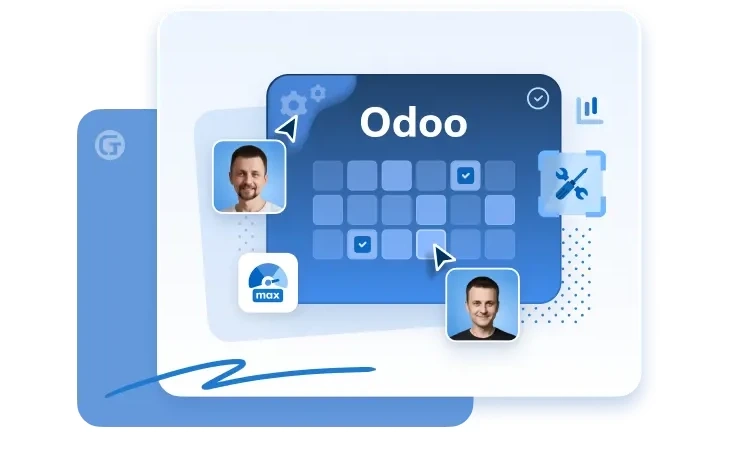In today’s fast-evolving business environment, having a flexible and scalable Enterprise Resource Planning (ERP) system is critical for organizations aiming to stay competitive. Odoo ERP has become a popular choice for many companies worldwide due to its modular design, open-source nature, and rich feature set. However, no ERP out of the box can perfectly fit every company’s unique business processes. That’s where customization comes in.
When it comes to customizing Odoo ERP, businesses often find themselves at a crossroads between using Odoo Studio — the platform’s built-in customization tool — and investing in custom development by hiring professional developers or Odoo partners. Both paths offer unique advantages and challenges, and choosing the right one depends on your organization’s specific needs, budget, technical capabilities, and long-term vision.
This article explores the key differences between Odoo Studio and custom development, helping you decide which customization path is the best fit for your business.
Understanding Odoo ERP Customization
Before diving into the comparison, it’s important to understand what ERP customization entails in the context of Odoo.
Odoo ERP customization means tailoring the software to align perfectly with your business workflows, data structures, and reporting needs. This could involve:
- Modifying existing modules or workflows
- Creating new modules and features
- Adjusting user interfaces and forms
- Automating specific tasks
- Integrating with external systems
Since Odoo is open-source, it allows for extensive customization — but the method of achieving it can vary widely.
What is Odoo Studio?
Odoo Studio is a low-code/no-code development environment embedded within Odoo, designed to empower end-users and business analysts to customize their ERP applications without deep technical knowledge.
Key Features of Odoo Studio
- Drag-and-drop interface builder: Easily customize forms, views, and reports by dragging and dropping fields.
- Create custom apps: Build entirely new apps that fit your specific business needs.
- Automate workflows: Set automated actions, notifications, and scheduled tasks with simple rules.
- Add new fields and relationships: Extend existing modules by adding custom fields or linking data models.
- Modify menu items and navigation: Personalize how users interact with the system.
- No coding required: Designed for business users rather than developers.
Who is Odoo Studio For?
Odoo Studio is ideal for small to medium-sized businesses with limited technical resources that want to quickly adapt their Odoo ERP without waiting on development cycles. It suits organizations that require frequent but relatively simple changes, such as adding custom fields, changing screen layouts, or automating straightforward processes.
What is Custom Development?
Custom development refers to writing custom code, typically in Python and XML for Odoo, to create new features, extend existing modules, or deeply modify system behavior. This work is usually done by experienced Odoo developers or Odoo implementation partners.
Key Features of Custom Development
- Full flexibility: Anything you can imagine can be built — complex workflows, integrations, or unique business logic.
- Performance optimization: Developers can fine-tune performance for critical processes.
- Complete control: Custom modules can be tailored and optimized at a very granular level.
- Integration with external systems: Seamless integration with third-party tools like CRM, accounting systems, or e-commerce platforms.
- Support for complex business processes: Custom development handles multi-step approvals, multi-currency accounting, and industry-specific workflows.
Who is Custom Development For?
Custom development is suitable for medium to large enterprises with unique or complex requirements that exceed the capabilities of Odoo Studio. These businesses usually have dedicated IT teams or work with professional Odoo consultants and need highly scalable, maintainable solutions.
Comparing Odoo Studio vs. Custom Development
Let’s break down the differences and considerations between these two customization approaches across various dimensions.
1. Ease of Use and Accessibility
- Odoo Studio: Designed for non-technical users; requires no programming skills. Users can visually drag and drop components, add fields, and configure workflows. This accelerates deployment and reduces dependency on developers.
- Custom Development: Requires professional developers proficient in Odoo’s technical stack (Python, PostgreSQL, XML). Not accessible for typical end-users.
Winner: Odoo Studio for ease of use.
2. Customization Depth and Complexity
- Odoo Studio: Best for simple to moderately complex customizations like adding fields, changing views, and simple automations.
- Custom Development: Can handle complex business logic, integration, multi-step workflows, and extensive feature development beyond the scope of Studio.
Winner: Custom Development for deep and complex customization.
3. Time to Implementation
- Odoo Studio: Usually faster because it’s built into the Odoo interface and doesn’t require a coding or deployment process. Changes can be made and seen in real-time.
- Custom Development: Longer lead times due to requirement gathering, development, testing, and deployment cycles.
Winner: Odoo Studio for speed.
4. Cost
- Odoo Studio: Typically lower cost since it doesn’t require hiring developers. However, Odoo Studio comes with a licensing cost and limitations.
- Custom Development: Higher upfront cost due to developer fees and longer timelines, but potentially better ROI if customization is critical for your business.
Winner: Odoo Studio for lower initial cost.
5. Maintenance and Upgrades
- Odoo Studio: Since it modifies the system via the Studio layer, it is generally upgrade-safe for minor version updates. However, very complex customizations can be difficult to maintain if built entirely on Studio.
- Custom Development: Custom code must be carefully maintained, especially during Odoo upgrades. This can require ongoing developer involvement to ensure compatibility.
Winner: Tie — depends on the quality of custom development and upgrade strategy.
6. Scalability and Future Proofing
- Odoo Studio: Best suited for businesses with modest, evolving needs. Not ideal if you expect highly complex processes or large-scale operations in the future.
- Custom Development: More scalable in the long run as you can design solutions that grow with your business.
Winner: Custom Development for scalability.
7. Control and Ownership
- Odoo Studio: Changes are often made within Odoo’s platform, sometimes with limited version control.
- Custom Development: Full control over the codebase, allowing version control, testing, and custom deployment strategies.
Winner: Custom Development for control.
When to Choose Odoo Studio
Consider Odoo Studio customization if:
- You have straightforward customization needs.
- Your team lacks programming skills or resources.
- You want to quickly prototype and implement small changes.
- You have a limited budget and want to avoid expensive developer fees.
- You want to maintain direct control over your ERP without depending heavily on IT.
Odoo Studio empowers business users to become “citizen developers” who can tweak and improve the system continuously, adapting to business changes on the fly.
When to Opt for Custom Development
Consider custom development if:
- Your business processes are unique, complex, or highly regulated.
- You need integrations with external platforms or legacy systems.
- You require custom reports, dashboards, or performance optimization.
- Your organization is large and requires a scalable, maintainable solution.
- You have a development team or access to professional Odoo consultants.
Custom development unlocks the full potential of Odoo ERP customization, enabling businesses to build truly tailored digital ecosystems.
Hybrid Approach: The Best of Both Worlds
Many organizations combine both approaches:
- Use Odoo Studio for quick wins, minor customizations, and user interface tweaks.
- Employ custom development for core, complex features and integrations.
This hybrid strategy balances speed and cost-efficiency with deep customization and scalability. It allows organizations to remain agile while planning for future growth.
Tips for Successful Odoo ERP Customization
Regardless of the path chosen, consider these best practices:
- Clearly define requirements: Document your business processes and identify which parts need customization.
- Start small and iterate: Avoid over-customizing at the start; build incrementally.
- Involve end-users: Gather feedback to ensure the solution fits real workflows.
- Plan for upgrades: Ensure customizations won’t block future Odoo updates.
- Choose trusted partners: If outsourcing, work with experienced Odoo developers or certified partners.
- Train your team: Equip users and admins with the skills to maintain and adapt the system.
Conclusion
Choosing between Odoo Studio and custom development for your odoo erp customization needs depends largely on your business size, complexity, budget, and timeline.
- If you want quick, cost-effective, and manageable customizations without technical complexity, Odoo Studio is an excellent choice.
- If your organization demands intricate, scalable, and deeply integrated solutions, custom development is the way to go.
Understanding these trade-offs will help you build an Odoo ERP environment that truly supports your business strategy and drives growth.



